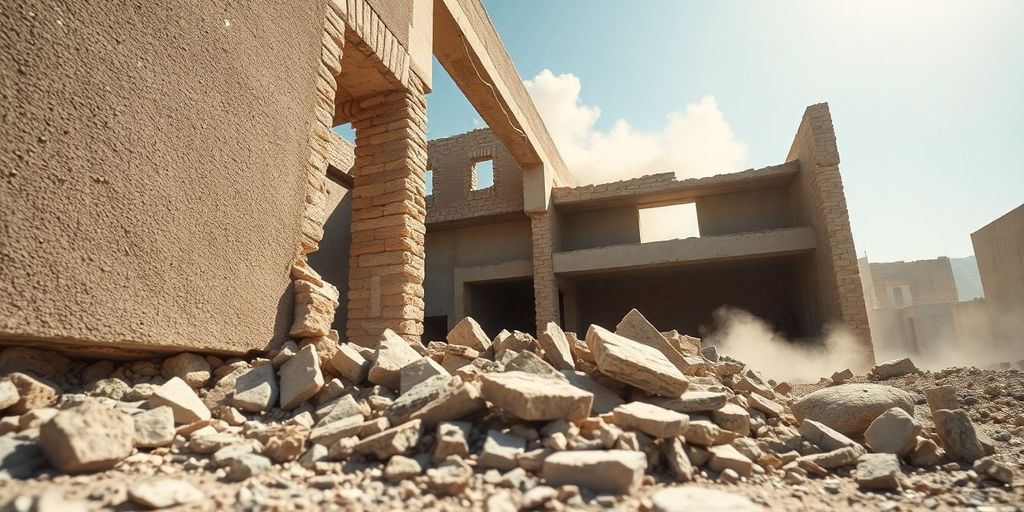A powerful 6.2-magnitude earthquake struck the Dodecanese Islands near the Greece-Turkey border, causing significant tremors and panic in popular holiday destinations. The quake, felt across a wide area including Rhodes and Turkey’s Marmaris, resulted in injuries and at least one fatality, prompting evacuations and concerns among residents and tourists.
Dual Earthquakes Rock Aegean Region
Early on Tuesday, a 6.2-magnitude earthquake (initially reported as 5.8 magnitude by some sources) originated near Rhodes, Greece, and Turkey’s western coast, particularly impacting Marmaris. This was followed by a separate 5.3-magnitude tremor south of Crete later the same day. Experts have clarified that despite their temporal proximity, these two seismic events are unrelated.
Impact on Holiday Hotspots
- Rhodes, Greece: Tourists and residents reported hotels violently swaying. While no serious injuries were reported on the island, there were instances of minor infrastructure damage. Fearful residents were jolted from their beds, but reportedly faced the event with composure.
- Marmaris, Turkey: The strong tremor led to widespread panic, with residents evacuating homes. One 14-year-old girl died, and dozens were injured, primarily from jumping out of windows or balconies in fear. The earthquake was centered in the Mediterranean Sea at a depth of 74km.
Expert Analysis and Reassurance
Professor Efthymios Lekkas, president of the Earthquake Planning and Protection Organization (OASP), stated that the Rhodes earthquake’s significant focal depth (over 40 miles or 64.9 kilometers) suggests it will not have significant surface effects, including no tsunami or a rich aftershock sequence. He emphasized that this was likely the main earthquake. Regional Governor Giorgos Hadjimarkos reassured tourists that Greek construction standards are among the best in Europe and that the phenomenon is normal.
Regarding the Crete earthquake, Lekkas reiterated it was an independent event, unrelated to previous quakes. However, due to its shallower focal depth, an aftershock sequence is expected, and ongoing monitoring is required.
Travel Advice and Safety Measures
As of the latest reports, the UK Foreign Office has not updated its travel advice for Greece or Turkey specifically due to these earthquakes. However, their existing guidance notes that both countries regularly experience earthquakes and tremors, which can be high magnitude and pose risks. Travelers are advised to be aware of the risk of aftershocks and to register for alerts from local emergency communication services.
Key Takeaways
- A 6.2-magnitude earthquake struck near the Greece-Turkey border, causing panic and injuries.
- A separate 5.3-magnitude earthquake occurred near Crete, unrelated to the first.
- One fatality and multiple injuries were reported in Turkey’s Marmaris due to panic-induced actions.
- Experts reassure that the main Rhodes earthquake is unlikely to have significant aftershocks or tsunamis.
- Travel advice remains largely unchanged, but awareness of seismic activity is advised for visitors.
Sources
- 6.2-magnitude earthquake strikes Greece’s Rhodes, Latest news from Azerbaijan.
- Greece Jolted by Two Earthquakes: 5.8 Hits Rhodes, Followed by 5.3 South of Crete, GreekReporter.com.
- Earthquake Today: Tremors of 6.2 magnitude hits Dodecanese islands at Greece-Turkey border, Mint.
- Magnitude 6.2 earthquake strikes Dodecanese Islands of Greece, EMSC says, The Jerusalem Post.
- Latest UK Foreign Office travel advice for Greece and Turkey after both hit by earthquakes | Travel News |
Travel, Daily Express.






